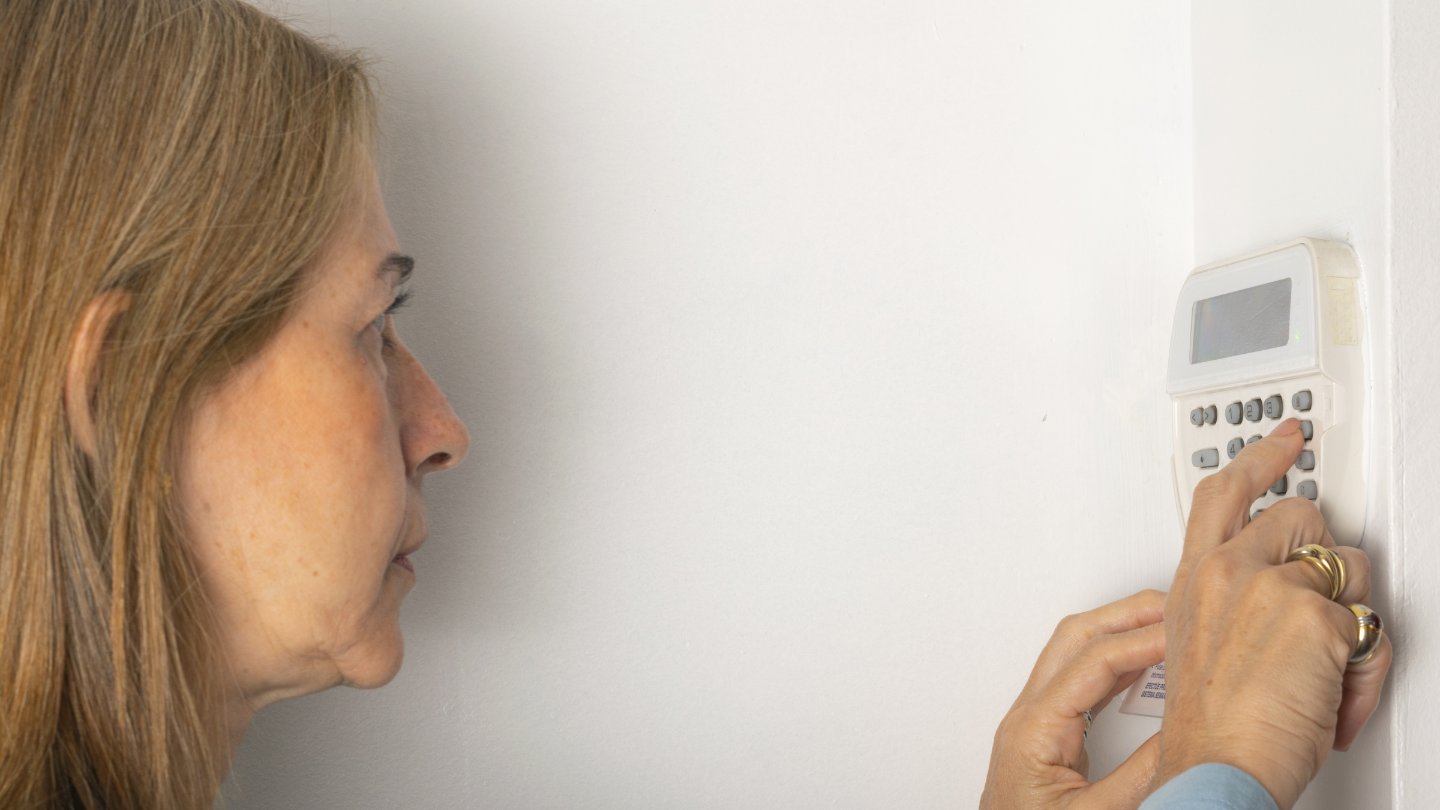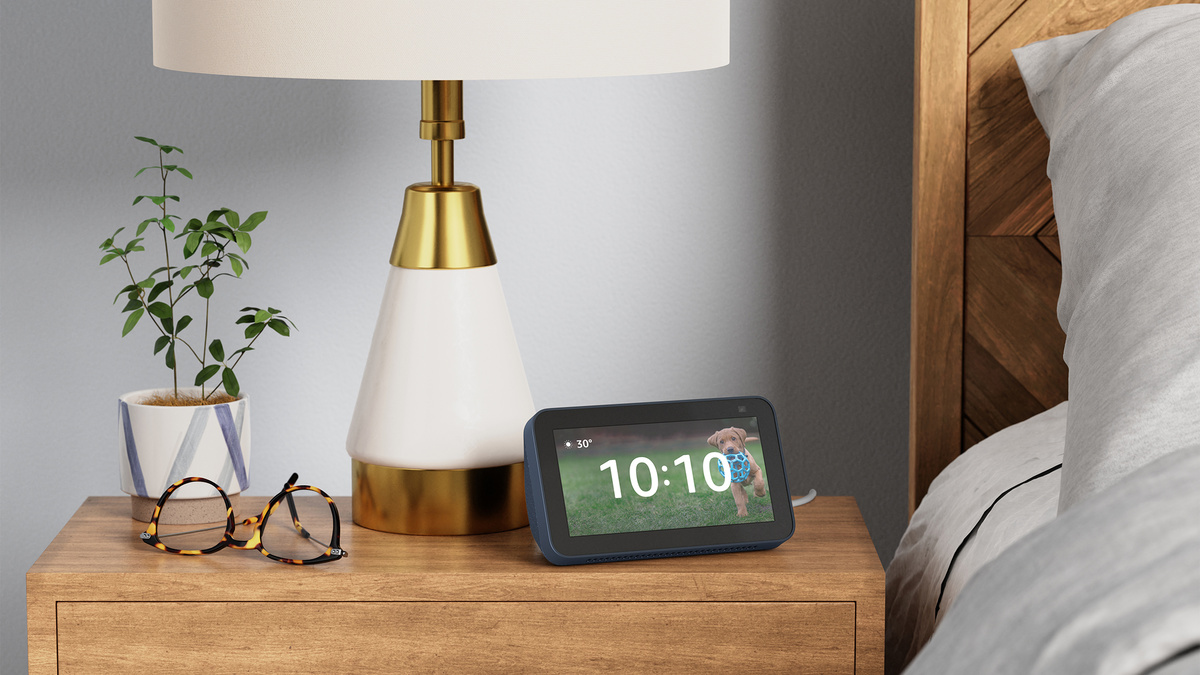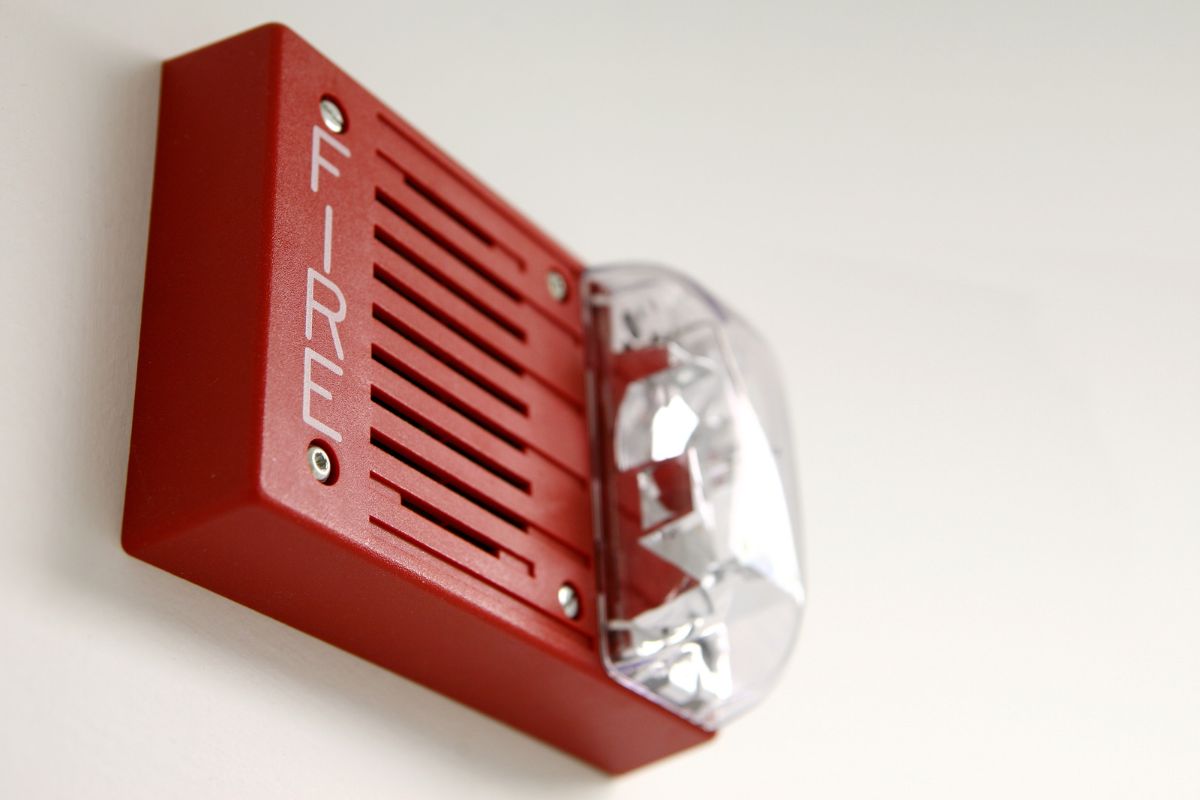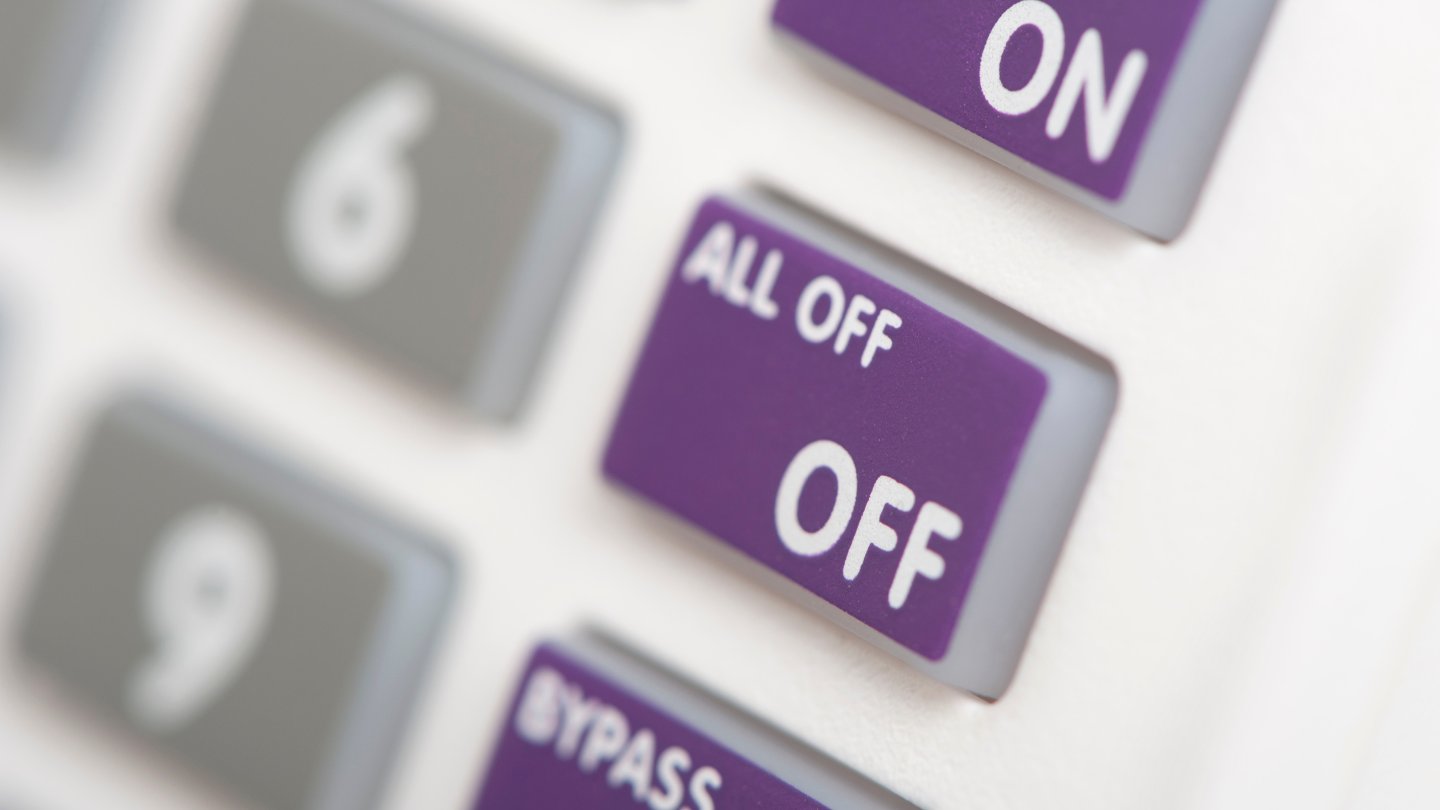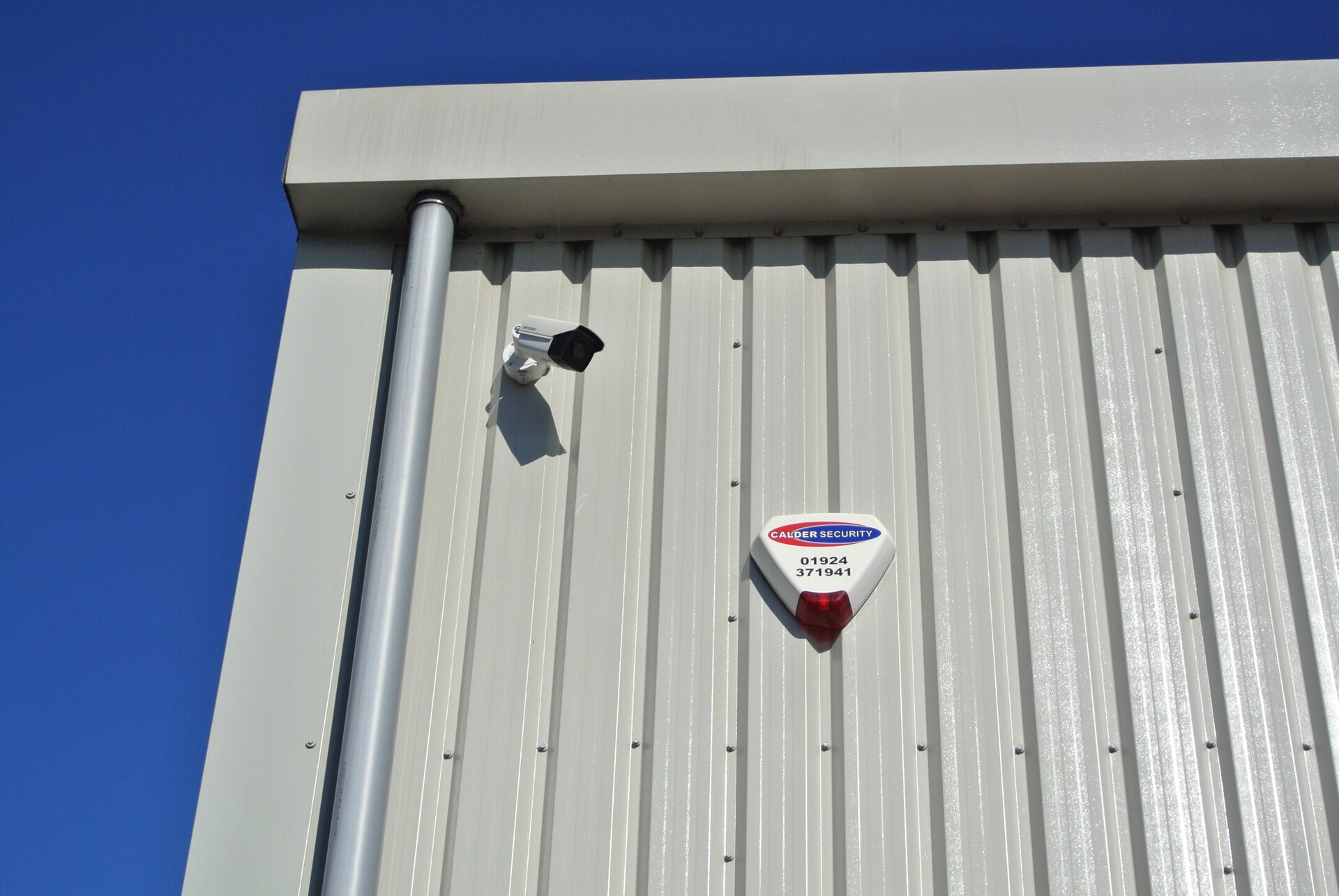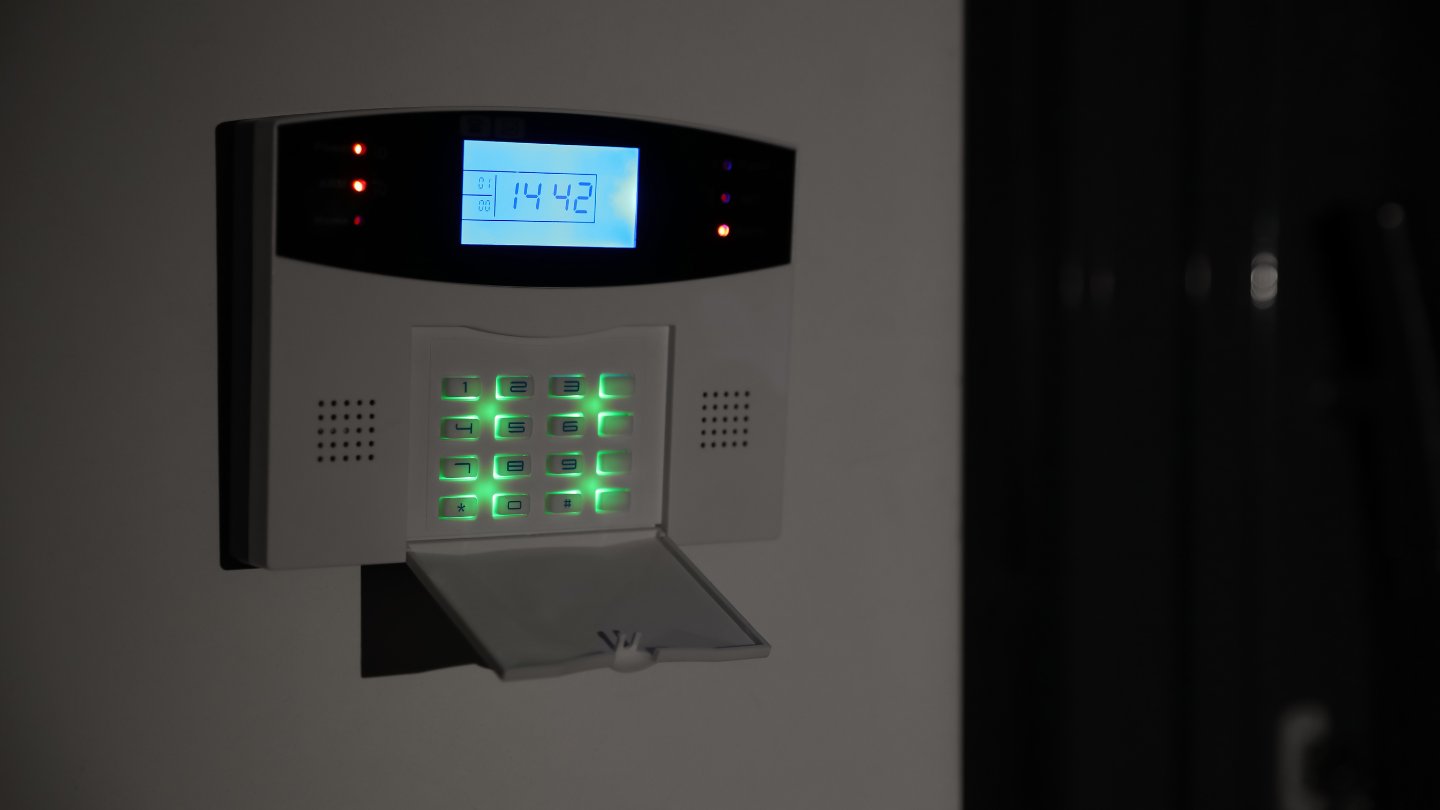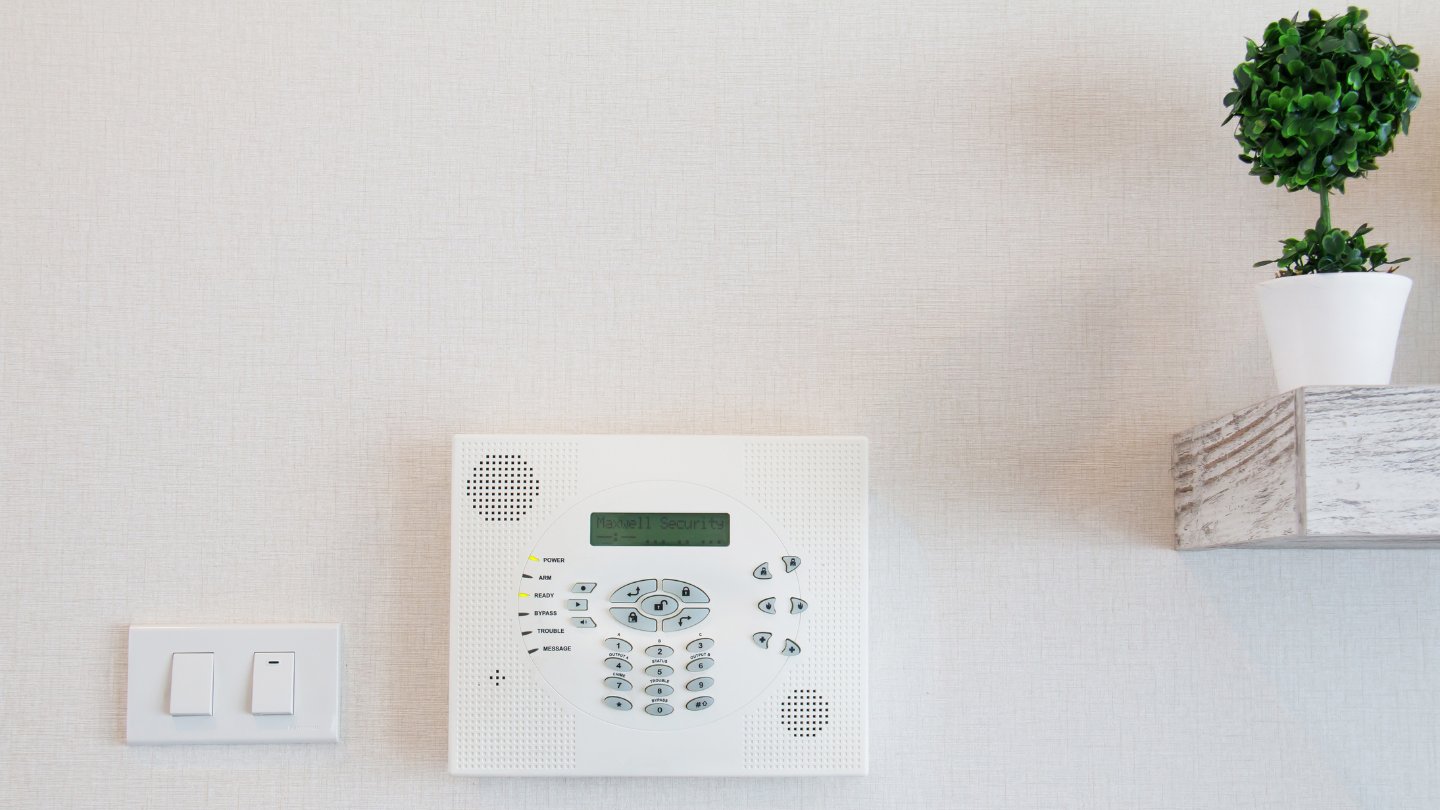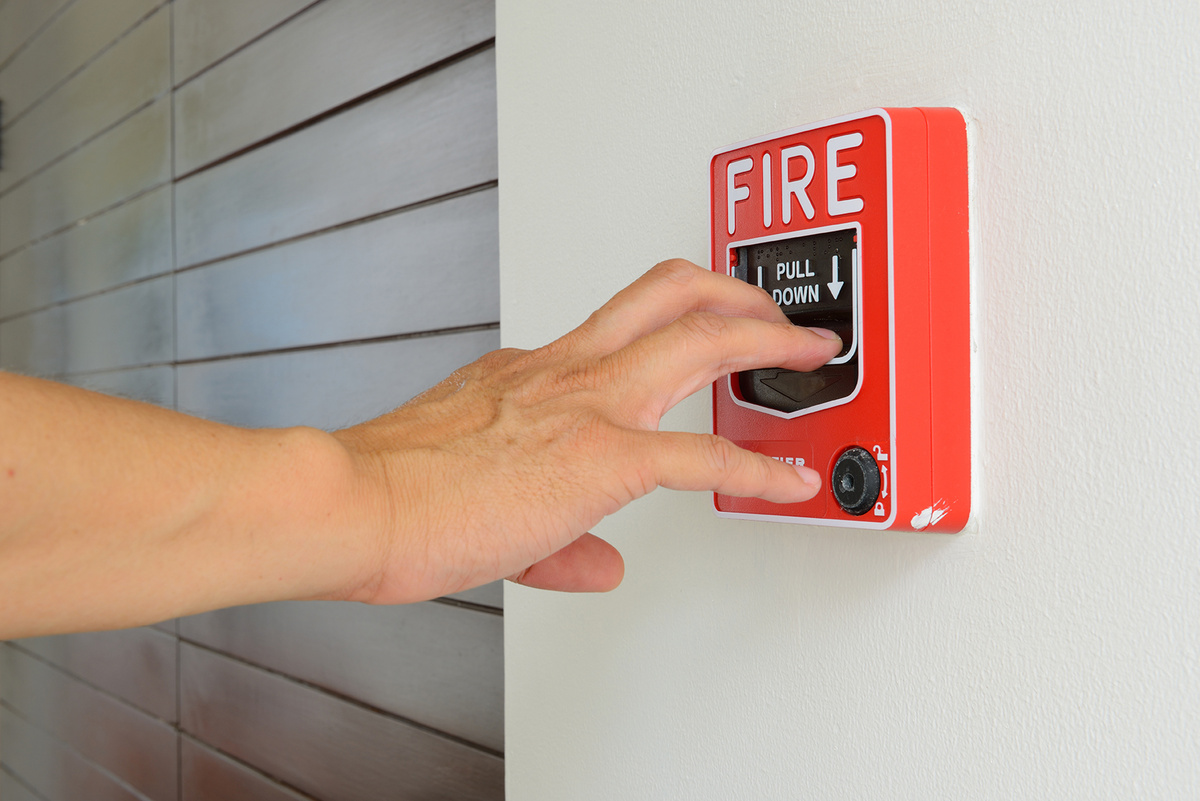Home>Home Security and Surveillance>Do Alarm Systems Deter Burglars When They Go Off
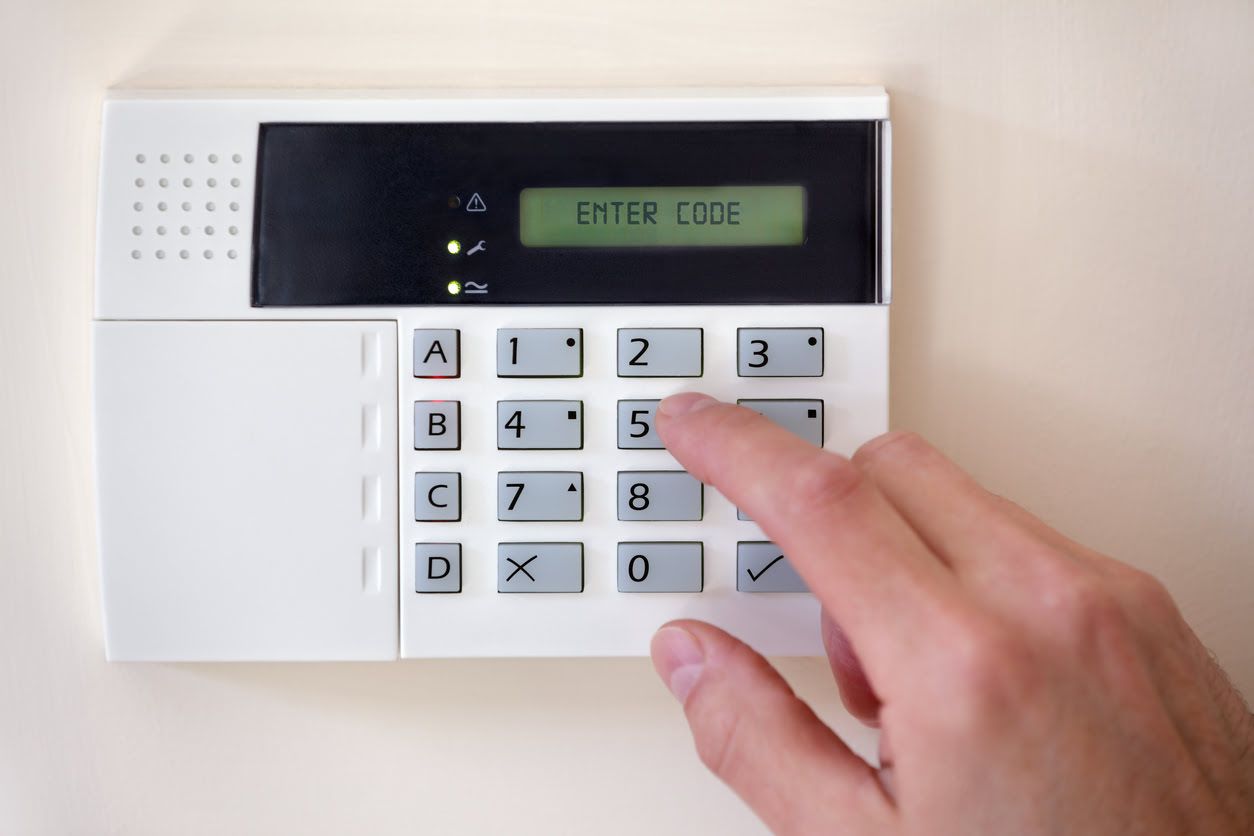

Home Security and Surveillance
Do Alarm Systems Deter Burglars When They Go Off
Modified: October 20, 2024
Discover whether alarm systems effectively deter burglars when they go off with our comprehensive guide on home security and surveillance. Protect your property and gain peace of mind.
(Many of the links in this article redirect to a specific reviewed product. Your purchase of these products through affiliate links helps to generate commission for Storables.com, at no extra cost. Learn more)
Introduction
In today’s world, home security and surveillance have become increasingly important, as incidents of burglary and break-ins continue to rise. Homeowners are searching for effective ways to protect their properties and loved ones from potential threats. One popular solution that offers both peace of mind and a deterrent factor is an alarm system.
An alarm system is a comprehensive security measure that combines various components, such as door and window sensors, motion detectors, surveillance cameras, and a central control panel. When triggered, it sets off a loud siren and alerts the homeowner, monitoring company, or local authorities to the potential threat.
However, a common question that arises is whether alarm systems truly deter burglars when they go off. Let’s explore the intricacies of alarm systems and shed light on their effectiveness as a deterrent measure.
How Alarm Systems Work
An alarm system typically functions by first detecting an unauthorized entry or suspicious activity. This detection is made possible through the use of sensors strategically placed at vulnerable points around the house, including doors, windows, and other access points. When a sensor is triggered, it sends a signal to the central control panel, which then activates the alarm system.
Once the alarm is triggered, a loud siren or alarm sound is emitted, creating a loud and attention-grabbing noise. In addition to the audible alarm, many modern alarm systems also feature visual alerts, such as flashing lights, which increase the visibility of the alarm and draw attention to the potential break-in.
Additionally, some alarm systems are now connected to monitoring stations or security companies. In the event of an alarm activation, these monitoring stations are immediately notified and can dispatch security personnel or contact the homeowners to verify the situation.
Perception of Burglars Towards Alarm Systems
The effectiveness of alarm systems as a deterrent largely depends on the perception of would-be burglars and potential intruders. Research suggests that the presence of a visible alarm system can act as a powerful deterrent, with the majority of burglars admitting they would avoid targeting homes equipped with such systems.
Burglars are generally looking for an easy and quick opportunity to break in, with the ultimate goal of avoiding detection or apprehension. A prominently displayed alarm system signals to them that the risk of being caught or identified is significantly higher, leading them to reconsider targeting that particular property.
Furthermore, studies have shown that the noise generated by alarm systems can startle burglars and cause them to flee the scene. The fear of drawing attention to themselves, increasing the chances of being caught, is often enough for intruders to abandon the burglary attempt.
Case Studies on Alarm System Effectiveness
Several case studies have provided insights into the effectiveness of alarm systems as a deterrent to burglars. One study conducted by the Rutgers University School of Criminal Justice found that residential properties with alarm systems are 60% less likely to be targeted compared to those without any security measures in place.
Another study conducted by the University of North Carolina at Charlotte showed that the presence of an alarm system drastically reduced the likelihood of a successful break-in. Among the surveyed burglars, 83% reported that they would leave immediately upon hearing an alarm or seeing evidence of an alarm system.
Key Takeaways:
- Alarm systems are effective deterrents to burglars, as they startle intruders and signal that the property is protected, making them less likely to target homes with visible alarm systems.
- To maximize the deterrence power of alarm systems, homeowners should ensure their visibility, integrate with security cameras, engage with their community, and regularly maintain and test the system.
Read more: How Long Will A Burglar Alarm Go Off For
How Alarm Systems Work
An alarm system is a sophisticated network of components designed to detect and alert homeowners or security providers to potential threats. Understanding how alarm systems work can help homeowners make informed decisions about their home security.
At the heart of every alarm system is a control panel that acts as the central hub. The control panel connects to various sensors strategically placed throughout the home, including door and window sensors, motion detectors, and sometimes even glass break sensors.
When an intruder attempts to enter the home by opening a door or window, the corresponding sensor is triggered, sending a signal to the control panel. The control panel interprets the signal and initiates a response, such as sounding an alarm and activating any connected devices, such as security cameras or lights.
In addition to door and window sensors, motion detectors play a crucial role in alarm systems. These detectors use infrared or microwave technology to detect movement within the home. If an intruder is detected, the motion detector triggers the alarm system.
Some alarm systems also include glass break sensors, which can detect the sound frequency and pattern associated with breaking glass. These sensors are particularly useful for homes with large windows or glass doors, as they provide an additional layer of protection against forced entry.
Modern alarm systems often come with additional features that enhance their effectiveness. These features can include panic buttons, which allow homeowners to instantly trigger an alarm in case of an emergency, and remote access capabilities, which enable homeowners to monitor and control their alarm systems remotely using a smartphone or computer.
When an alarm is triggered, the system typically emits a loud siren or alarm sound, serving as both a deterrent and an alert to the homeowner and those nearby. Some systems can also send push notifications or phone calls to the homeowner’s mobile device to notify them of the alarm activation.
For added security, many alarm systems can be connected to professional monitoring services. These services provide round-the-clock monitoring of the alarm system and can dispatch emergency personnel or contact the homeowner in the event of an alarm activation. Having a professional monitoring service can provide an extra layer of protection, ensuring that the proper authorities are notified promptly in the event of a break-in or emergency.
Overall, the intricate network of sensors, control panels, and other components work together harmoniously to create a robust and effective alarm system. Their primary goal is to detect unauthorized entry or suspicious activity and alert both the homeowner and potential intruders that the property is protected.
Perception of Burglars Towards Alarm Systems
The effectiveness of alarm systems as a deterrent largely depends on the perception of would-be burglars and potential intruders. Understanding how burglars perceive alarm systems can shed light on their effectiveness and influence the decision-making process when it comes to targeting properties.
Research suggests that the presence of a visible alarm system can act as a powerful deterrent. In fact, studies have shown that the majority of burglars admit they would avoid targeting homes equipped with alarm systems.
Burglars are generally looking for an easy and quick opportunity to break in, with the ultimate goal of avoiding detection or apprehension. A prominently displayed alarm system signals to them that the risk of being caught or identified is significantly higher, leading them to reconsider targeting that particular property.
Furthermore, the noise generated by alarm systems can startle burglars and cause them to flee the scene. The fear of drawing attention to themselves, increasing the chances of being caught, is often enough for intruders to abandon the burglary attempt.
Aside from the immediate deterrent factor, alarm systems also create a perception that the property is actively monitored and protected. This sends a message to potential burglars that the homeowner takes home security seriously and has invested in a reliable security system to safeguard their property.
It’s important to note that while alarm systems are generally effective in deterring opportunistic burglars, some experienced or determined criminals may still attempt to bypass or disable the system. These individuals may have prior knowledge or specific skills in dealing with alarm systems.
This is why it’s crucial for homeowners to choose a reputable alarm system provider and ensure that their system is properly installed and maintained. Regularly testing the system and upgrading to newer technologies can help stay ahead of potential intruders and increase the overall effectiveness of the alarm system as a deterrent.
Additionally, technological advancements have made alarm systems more sophisticated, intuitive, and integrated with other security features. For example, alarm systems can now be connected to surveillance cameras, allowing homeowners to visually monitor their property remotely.
Overall, the perception of burglars towards alarm systems is clear: they are a significant deterrent. The visible presence of a reliable alarm system sends a message to potential intruders that the property is protected and increases the risk and potential consequences of attempting a break-in, making them reconsider and ultimately choose an easier target.
By investing in an alarm system and leveraging its deterrent capabilities, homeowners can take proactive steps to protect their property and discourage potential burglars from targeting their homes.
Case Studies on Alarm System Effectiveness
Several case studies have been conducted to examine the effectiveness of alarm systems as a deterrent to burglars. These studies provide valuable insights into the impact of alarm systems on reducing the risk of break-ins and burglaries.
A study conducted by the Rutgers University School of Criminal Justice found that residential properties with alarm systems are 60% less likely to be targeted compared to those without any security measures in place. The study analyzed data from over 400 convicted burglars, revealing that the presence of an alarm system significantly influenced their decision to target a particular property.
Another study conducted by the University of North Carolina at Charlotte focused on the perception of burglars toward alarm systems. Among the surveyed burglars, 83% reported that they would leave immediately upon hearing an alarm or seeing evidence of an alarm system. This indicates that the presence of an alarm system can deter the majority of burglars from attempting a break-in.
Furthermore, a study published in the Journal of Experimental Criminology examined the effectiveness of monitored alarm systems. The study found that homes with professionally monitored alarm systems were significantly less likely to experience burglaries compared to homes without any alarm system or those with self-monitored systems. This highlights the importance of professional monitoring in maximizing the effectiveness of alarm systems.
Case studies have also demonstrated the benefits of alarm systems in real-world scenarios. One such case involved a residential neighborhood plagued by a series of burglaries. After residents of the neighborhood implemented alarm systems, the frequency of break-ins drastically reduced, with no further incidents reported in the months following the installations.
Another case study focused on a commercial property that experienced multiple break-ins. Following the installation of an alarm system, combined with security cameras, the property saw a significant decrease in burglary attempts. The visible presence of the alarm system and the surveillance cameras acted as a powerful deterrent, effectively protecting the property from further intrusions.
These case studies collectively demonstrate the significant impact that alarm systems can have in deterring burglaries and break-ins. By installing a reliable and visible alarm system, homeowners and property owners can effectively reduce the risk of becoming a target for criminals.
It is worth noting that while alarm systems can greatly enhance the security of a property, no security measure is completely foolproof. It is important for homeowners to complement their alarm systems with other security measures, such as proper lighting, secure locks on doors and windows, and a neighborhood watch program if applicable.
By combining these various layers of security, homeowners can create a comprehensive and effective defense against potential burglary attempts.
Tip: Yes, alarm systems can deter burglars when they go off. Studies show that the loud noise and attention they attract can make burglars flee to avoid getting caught.
Factors that Influence Alarm System Deterrence
While alarm systems are generally effective in deterring burglars, several factors can influence their effectiveness. Understanding these factors can help homeowners maximize the deterrence power of their alarm systems.
Visible Presence: The visibility of an alarm system plays a crucial role in deterring potential intruders. When burglars see visible signs of an alarm system, such as window decals or yard signs, it signals that the property is protected. This alone can discourage burglars from targeting the property, as they know the risk of being caught or identified is higher.
Alarm Sound: The sound emitted by the alarm system can startle burglars and cause them to flee the scene. It is important to choose an alarm system with a loud and attention-grabbing sound that can be heard throughout the property and nearby areas. The loud sound raises the chances of drawing attention to the break-in and increases the risk of the intruders being caught.
Response Time: The response time of a security company or monitoring service can significantly impact the effectiveness of an alarm system. A fast response time, whether it’s the security personnel arriving at the scene or the monitoring company contacting the homeowner or authorities promptly, increases the likelihood of deterring burglars. Intruders are more likely to be caught or interrupted during the burglary attempt if help arrives quickly.
Integration with Other Security Measures: Alarm systems work best when integrated with other security measures. For example, connecting the alarm system to surveillance cameras provides a visual deterrent, as potential intruders can see that they are being monitored. Additionally, integrating the alarm system with smart home technology allows homeowners to control and monitor their security system remotely, enhancing its effectiveness.
Regular Maintenance and Testing: To ensure optimal performance and deterrence, it is essential to regularly maintain and test the alarm system. Faulty sensors or outdated equipment can compromise the system’s effectiveness. Regularly testing the alarm system, including all sensors and communication components, ensures that it is functioning properly and provides peace of mind to homeowners.
Neighborhood Engagement: The overall security of a neighborhood can influence the effectiveness of individual alarm systems. Engaging in neighborhood watch programs, collaborating with neighbors, and establishing a strong sense of community can create a collective deterrent effect. Burglars are less likely to target an area where residents actively look out for one another and have robust security measures in place.
Perception of Legitimate Occupancy: Alarm systems can have a more significant deterrent effect when combined with strategies that create the perception of legitimate occupancy. This can include techniques such as timed light switches, utilizing smart home technology to control lights and appliances remotely, and ensuring that the property appears lived-in even when homeowners are away.
By considering these factors and implementing appropriate measures, homeowners can significantly enhance the deterrence power of their alarm systems. An effectively designed and properly maintained alarm system, combined with other security measures, creates a comprehensive and robust defense against potential burglaries.
Tips for Maximizing Alarm System Deterrence
An alarm system is an effective tool for deterring burglars and protecting your home. To maximize the deterrence power of your alarm system, consider implementing the following tips:
1. Visible Signage: Display signs and decals indicating the presence of your alarm system in prominent areas, such as windows and entry points. This sends a clear message to potential intruders that your property is protected and increases the risk for them.
2. Regularly Test Your System: Conduct regular tests of your alarm system to ensure that all sensors, alarms, and monitoring features are in proper working order. Regular maintenance and testing will help identify any issues and ensure that your system functions optimally.
3. Professional Monitoring: Consider subscribing to a professional monitoring service that can quickly respond to alarm activations and dispatch appropriate authorities if needed. This adds an additional layer of security and ensures that potential intruders are aware that your alarm system is being actively monitored.
4. Integrate with Security Cameras: Connect your alarm system to security cameras to enhance deterrence. Visible cameras act as a powerful deterrent by increasing the perceived risk for burglars. Additionally, recorded footage can provide valuable evidence in case of a break-in.
5. Connect to a Mobile App: Choose an alarm system that offers a mobile app to remotely monitor and control your security system. This allows you to receive real-time notifications, arm or disarm your system, and view security camera feeds from anywhere, increasing your peace of mind and deterring intruders.
6. Timed Lighting: Use timers for your indoor and outdoor lights to create the appearance of someone being home, even when you’re away. A well-lit property gives the impression that someone is present, making it less attractive to potential burglars.
7. Secure Entry Points: Ensure that all doors and windows are properly secured with high-quality locks. Reinforce entry points with additional measures such as deadbolts and security bars to make it more challenging for intruders to gain access to your home.
8. Engage with Your Community: Participate in neighborhood watch programs and establish a strong sense of community with your neighbors. Regular communication and collaboration can create a collective deterrent effect and improve the overall security of your neighborhood.
9. Maintain Landscaping: Keep your landscaping well-maintained, especially around windows and entry points. Overgrown shrubs and trees provide cover for potential burglars and may obscure the visibility of your alarm system.
10. Educate Your Family: Ensure that all family members are familiar with the alarm system and know how to arm, disarm, and respond to an alarm activation. Educate them on the importance of home security and the role they play in maximizing the system’s effectiveness.
By following these tips, you can maximize the deterrence power of your alarm system and protect your home and loved ones from potential intrusions. Regular maintenance, integration with other security measures, and promoting a strong sense of security within your community will contribute to creating a secure and safe environment.
Conclusion
In conclusion, alarm systems serve as an effective deterrent to burglars and play a crucial role in home security and surveillance. The presence of a visible alarm system alone can significantly reduce the likelihood of a break-in, as potential intruders are more likely to choose easier targets.
Through their intricate network of sensors, control panels, and monitoring features, alarm systems detect unauthorized entry and activate a range of audible and visual alerts. These alerts startle burglars and draw attention to the property, increasing the risk of being caught or identified.
Case studies have consistently shown the positive impact of alarm systems on reducing the risk of burglary attempts. Homes equipped with alarm systems are less likely to be targeted, and the majority of burglars admit they would avoid properties with visible signs of an alarm system.
Several factors influence the effectiveness of alarm systems, including their visibility, sound, response time, integration with other security measures, regular maintenance, and neighborhood engagement. Maximizing the deterrence power of alarm systems requires a holistic approach that incorporates these factors and ensures the system is properly maintained and optimized.
By following tips such as displaying visible signage, regularly testing the system, integrating with security cameras, connecting to a mobile app, and engaging with your community, you can enhance the effectiveness of your alarm system and deter potential burglars.
While alarm systems are powerful deterrents, it’s important to remember that they are just one piece of the home security puzzle. Employing other security measures, such as secure locks, well-maintained landscaping, and neighborhood watch programs, can further fortify your home against potential threats.
In today’s world, where home security is a top priority, investing in a reliable and comprehensive alarm system is an essential step towards protecting your property and ensuring the safety of your loved ones. By taking proactive measures and maximizing the deterrence power of your alarm system, you can create a secure and peaceful living environment for you and your family.
Frequently Asked Questions about Do Alarm Systems Deter Burglars When They Go Off
Was this page helpful?
At Storables.com, we guarantee accurate and reliable information. Our content, validated by Expert Board Contributors, is crafted following stringent Editorial Policies. We're committed to providing you with well-researched, expert-backed insights for all your informational needs.
